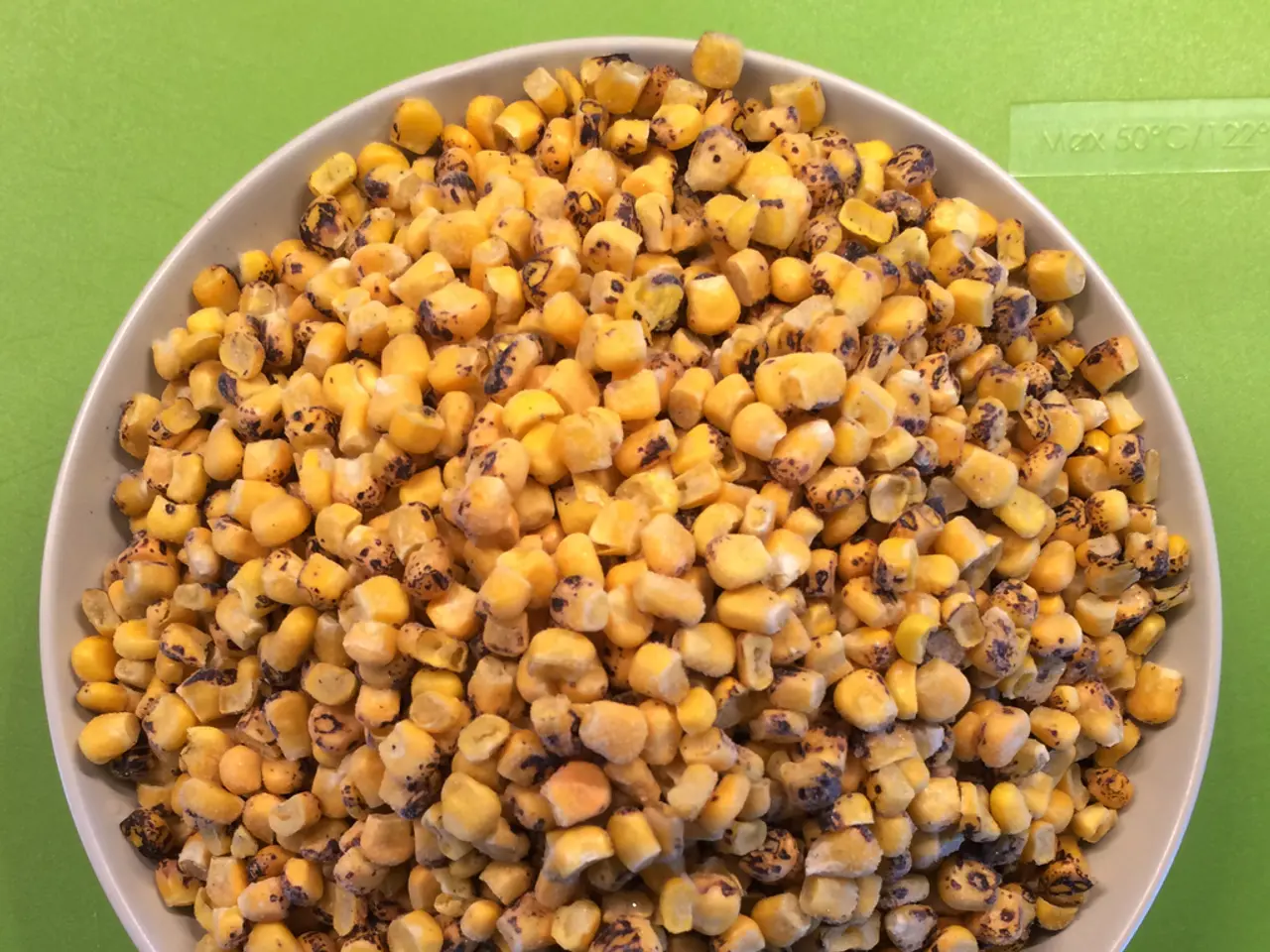Improve Your Health with the Incorporation of Chia Seeds in Your Daily Meals
Chia seeds, a staple food for ancient civilizations like the Aztecs and the Mayans, are gaining popularity today as a "superfood" due to their high nutrient content. These tiny seeds, native to Central and South America, come from the plant Salvia hispanica and are available in two common varieties: black and white.
Two tablespoons (about 28 grams) of chia seeds contain a wealth of essential nutrients. They provide 10 grams of fiber, 4 grams of protein, 5 grams of omega-3 fatty acids, and various vitamins and minerals.
The health benefits of chia seeds, particularly for heart health, are noteworthy. Chia seeds benefit heart health primarily by being rich in omega-3 fatty acids and fiber. The omega-3 fatty acids, especially alpha-linolenic acid (ALA), help reduce inflammation, a key factor in heart disease, and promote overall cardiovascular health.
The high fiber content, especially soluble fiber, can help lower cholesterol levels and stabilize blood sugar, both of which reduce the risk of heart disease and stroke. Some research suggests chia seed consumption can also lower high blood pressure, a major risk factor for heart disease. The combined antioxidant content of chia seeds further contributes to protecting the heart by reducing oxidative stress.
Chia seeds can be easily incorporated into daily meals. They can be eaten raw or soaked in water or milk, or added to smoothies, yogurt, oatmeal, chia pudding, baked goods, salads, or used as an egg replacement in vegan recipes.
In addition to heart health, chia seeds offer numerous other benefits. They are a good source of calcium, phosphorus, and magnesium, which are essential for maintaining strong bones. Chia seeds can help relieve constipation due to their high fiber content. They are also a good plant-based source of omega-3 fatty acids, which promote heart health and cognitive function.
Moreover, chia seeds are a natural energy booster, providing sustained energy for long periods, as used by ancient civilizations. They can help improve blood sugar control by slowing the absorption of sugar in the bloodstream.
As with any significant dietary changes, consulting a doctor is always recommended. Chia seeds are safe for people with diabetes as they can help regulate blood sugar levels. They can also help with hydration during exercise by absorbing large amounts of water.
In conclusion, chia seeds support heart health due to their high omega-3 fat, fiber, and antioxidant content, which collectively reduce inflammation, lower cholesterol, stabilize blood pressure, and protect against cardiovascular disease.
[1] de Oliveira DT, et al. (2014). Hypertension. 64(6): 1242-1249. [2] Hu FB, et al. (2010). Circulation. 122(12): 1333-1340. [3] Vuksan V, et al. (2010). Nutrition Journal. 9: 32. [4] Vuksan V, et al. (2012). Journal of Clinical Lipidology. 6(4): 493-501.
- The weight loss and fitness community is increasingly recognizing chia seeds as a valuable ally, thanks to their high nutrient content.
- The recovery and endurance of athletes might benefit from incorporating chia seeds into their diet due to their sustained energy properties.
- Maintaining a healthy diet is crucial, and it's important to incorporate various sources of nutrients, such as chia seeds, into your meal plan for overall fitness-and-exercise performance.
- Nutrition science suggests that chia seeds, as a rich source of omega-3 fatty acids, can contribute to cognitive function and may aid in overall mental health.
- In the realm of health-and-wellness, chia seeds are not only beneficial for heart health but also for maintaining mobility, as their high fiber content can aid in relieving constipation.
- A healthy diet often includes a variety of exercises, and chia seeds, with their protein content, can support strength building and muscle recovery.
- For those following specific diets, such as vegan or low-carb diets, chia seeds can serve as an excellent source of plant-based proteins and omega-3 fatty acids.
- Supplements are sometimes needed to support various aspects of health, and chia seeds can serve as a natural supplement, providing an array of nutrients from omega-3 fatty acids to fiber.
- Consulting a healthcare professional is always advisable before making significant changes to your nutrition, fitness, or health-and-wellness routine, including the consumption of chia seeds.




